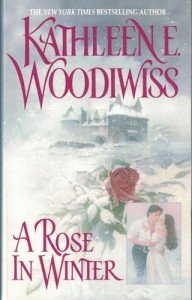My The Guernsey Literary and Potato Peel Pie Society Book Review - No Spoilers
Plot Summary
After WWII, London writer Juliet Ashton is struggling with her next book project. Then, she gets a letter out of the blue from Dawsey, a pig farmer on the island of Guernsey, who found her name inside a book. That note becomes the start of an unexpected correspondence—and soon, Juliet is writing back and forth not just with Dawsey, but with the quirky members of the Guernsey Literary and Potato Peel Pie Society. The book (by Mary Ann Shaffer and Annie Barrows) unfolds entirely through letters, telegrams, and notes exchanged between Juliet, her friends, and the islanders. As Juliet learns how the Society was formed as a wartime alibi under German occupation, she gets drawn deeper into these people’s lives, hopes, and wounds. What starts as a search for her next writing topic soon turns into a journey of personal healing, true friendship, and unexpected love. She travels to Guernsey, where the post-war community is still rebuilding, still grieving, and still holding fast to what matters: books, food, laughter, and each other.
Why I Love This Book
I’m drawn to quiet stories about ordinary people finding meaning and moving forward after heartbreak. This book captures that feeling perfectly. The epistolary format feels personal and honest—like I’m listening in on real lives instead of reading a constructed novel. I love how the characters jump off the page: Juliet is sharp, funny, self-critical, and stubborn; the islanders are both resilient and eccentric, and I found myself caring about each one. I enjoyed how the story balances humor and grief. There are moments that made me laugh—like the descriptions of the nearly inedible “potato peel pie”—and others that moved me with raw emotion, especially when islanders share memories from the German occupation. The sense of community is powerful in this story. I love that books, of all things, become a lifeline for these people: books are comfort, rebellion, and a way to come together. The theme of healing—through friendship, storytelling, and food—hit me hard. And the gentle romance is woven in so subtly that it feels natural and earned. Most of all, this book leaves me hopeful. People are hurt, but they still choose to connect, to share laughter, to heal. I could not put this down, and I’ve honestly re-read it more than once.
I’m also a sucker for stories about book lovers. I related to the joy, comfort, and sense of belonging that comes from finding your people—those who love the written word as much as you do. The friendship, slow-growing romance, and the way each character helps the others move forward brings a warmth that lasts even after the story ends. And even though the setting is post-war, I never felt crushed—there’s always a thread of hope, recovery, and humor running through it. The voice is witty, the storytelling rich, and the characters linger in my mind.
Who Will Like This Book
If you love books told through letters, you’ll be hooked. If you want nuanced, character-driven historical fiction and stories set in the aftermath of WWII, this is for you. If you’re drawn to novels featuring strong community bonds, quirky side characters, and a comforting sense of place, you’ll appreciate this story. You’ll enjoy this if you like gentle, clean romance that’s built on a foundation of friendship and shared hardship. This is one to read if you’re tired of war stories with only sadness—this is about survival, yes, but also about laughter, love, and finding family where you least expect it. And if you’re a book lover, you’ll see a bit of yourself here, too.
Tagged As
historical fiction, post-war, World War II, epistolary, small town, book lovers, community, quirky characters, gentle romance, friendship, healing, found family, sweet romance, slow burn, heartfelt, British setting, standalone, hope, closed-door romance, bittersweet, comfort read, book about books
Steam Level: 🌶️| Clean





